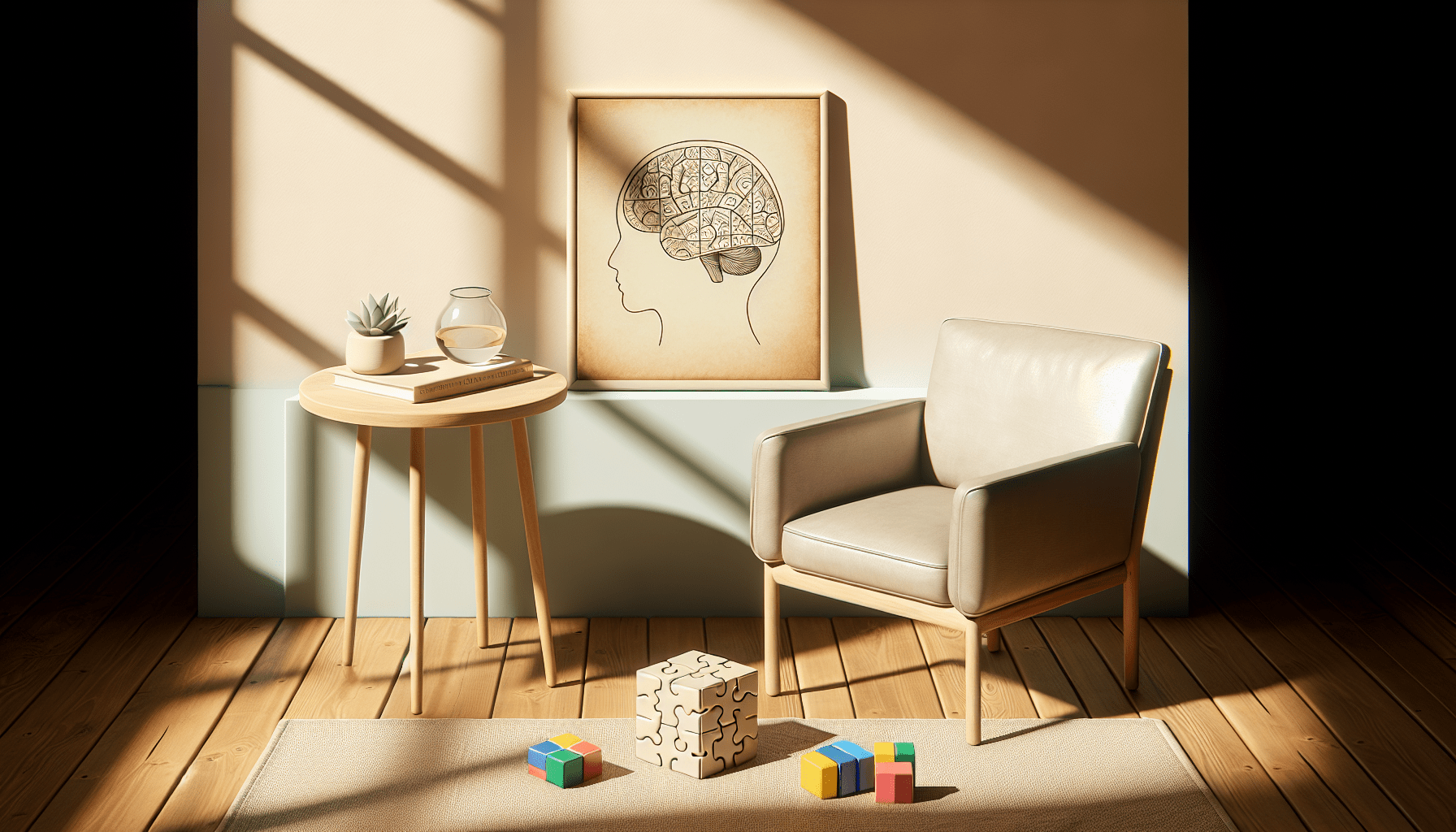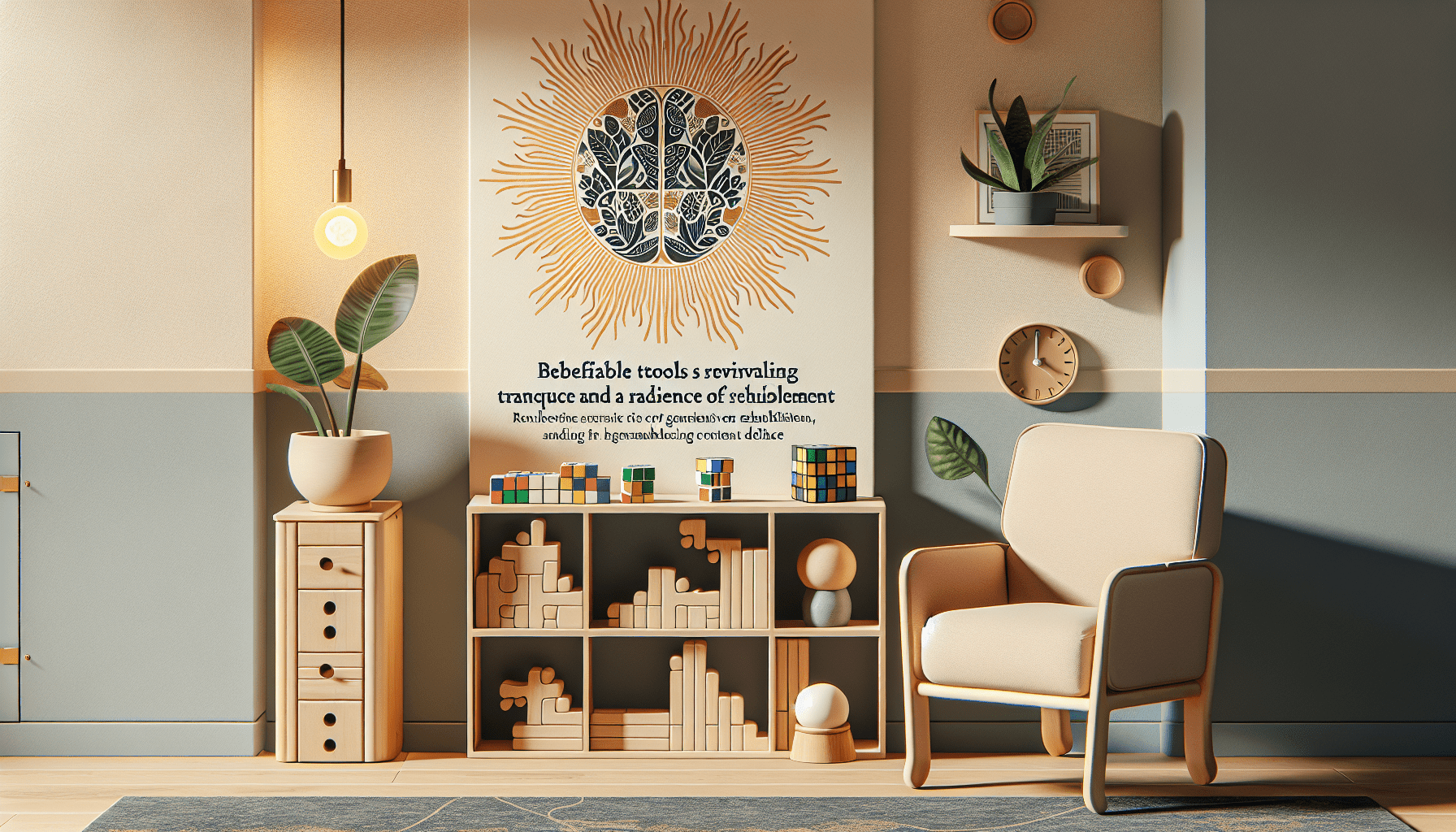Have you ever wondered how cognitive rehabilitation therapy can help manage cognitive decline? As our understanding of the brain expands, so does our approach to tackling challenges related to cognitive deterioration. Cognitive decline is not just a part of aging; it can also arise from various neurological conditions. Understanding therapy's role in addressing this issue is crucial in supporting those affected.

Understanding Cognitive Decline
Cognitive decline refers to the gradual loss of cognitive functions such as memory, attention, and decision-making skills. It can result from aging, neurological disorders, traumatic brain injuries, or other medical conditions. While some degree of cognitive decline might be a normal part of aging, certain conditions, like Alzheimer's disease, underscore significant impairment beyond typical age-related changes.
Different Types and Causes of Cognitive Decline
It's essential to distinguish between the types and causes of cognitive decline. These can include age-related cognitive decline, mild cognitive impairment (MCI), and severe conditions like dementia or Alzheimer's disease. Each of these presents unique challenges and varying levels of impairment. Understanding the underlying cause helps tailor therapeutic approaches effectively.
Symptoms and Impact
Cognitive decline can manifest as memory lapses, difficulty concentrating, language problems, and impaired reasoning. These symptoms can significantly impact everyday life, affecting an individual's ability to work, maintain social relationships, and execute daily tasks. Acknowledging these effects underscores the importance of intervention and therapy.
What is Cognitive Rehabilitation Therapy?
Cognitive Rehabilitation Therapy (CRT) is an evidence-based therapeutic approach designed to enhance cognitive functioning. Unlike general therapies, CRT specifically targets cognitive skills through structured activities and exercises. Its goal is to help individuals regain lost skills, learn compensatory strategies, and ultimately improve their quality of life.
Principles of Cognitive Rehabilitation Therapy
Central to CRT is the idea that the brain can adapt and reorganize itself, particularly through neuroplasticity. By engaging individuals in targeted cognitive exercises, CRT harnesses this adaptability, helping to restore or compensate for lost cognitive abilities. These interventions are customized to address the specific deficits and needs of the individual.
Methods and Techniques
CRT employs a variety of techniques, including memory exercises, problem-solving tasks, attention enhancement strategies, and more. Techniques can range from computer-based cognitive exercises to paper-and-pencil tasks, and individualized therapy sessions. The choice of techniques depends on the individual's specific deficits and rehabilitation goals.
How Cognitive Rehabilitation Therapy Supports Cognitive Decline
By targeting specific cognitive deficits, CRT plays a vital role in mitigating the effects of cognitive decline. It can improve memory, attention, problem-solving abilities, and other cognitive skills. Let's explore exactly how CRT contributes to managing cognitive decline.
Enhancing Memory
Memory tasks in CRT focus on strengthening both short-term and long-term memory. Techniques such as mnemonic devices, memory games, and spaced retrieval practice are commonly used to enhance memory recall, aiding individuals in better managing everyday tasks and information retention.
Improving Attention and Concentration
Attention exercises in CRT help individuals increase their capacity to focus and sustain attention. Strategies might include distraction management, dividing attention across tasks, or games that require sustained focus. As attention and concentration improve, individuals often find an enhanced ability to engage with complex tasks.
Strengthening Executive Function
Executive functions include planning, decision-making, and problem-solving skills. CRT targets these areas with activities designed to enhance the brain's ability to execute complex tasks, making individuals more adept at managing responsibilities that require higher-order thinking.
Proven Benefits of Cognitive Rehabilitation Therapy
Research has continually shown that CRT can lead to meaningful improvements in cognitive function. Studies highlight numerous advantages, providing hope and motivation for those battling cognitive decline.
Evidence-Based Success
A wealth of research demonstrates that CRT can produce measurable results, with many studies reporting significant improvements in cognitive functions. Participants often show enhanced performance in memory, attention, and problem-solving tasks after undergoing CRT, underscoring its effectiveness.
Quality of Life Improvements
Beyond just cognitive gains, CRT can lead to improved emotional and social well-being. As individuals reclaim cognitive abilities, they often experience increased independence, reduced anxiety, and greater confidence — critical factors in improving overall quality of life.

Tailoring CRT for Different Conditions
Cognitive decline can result from a variety of conditions. Therefore, CRT should be tailored to address the unique challenges presented by each specific condition.
CRT for Dementia and Alzheimer's Disease
For individuals with dementia or Alzheimer's disease, CRT focuses on memory, orientation, and everyday problem-solving skills. Tailoring therapy to meet the progressive nature of these diseases can help slow the decline in cognitive function, allowing for improved day-to-day management.
CRT for Traumatic Brain Injury (TBI)
TBI can result in specific cognitive deficits, which CRT addresses through customized interventions. These might include attention-promoting exercises and memory tasks to mitigate the impact of brain injury on daily life.
CRT for Stroke Recovery
Survivors of stroke often face challenges in both cognitive and physical realms. CRT assists by promoting cognitive recovery, often through exercises that parallel physical rehabilitation. This dual approach can significantly aid in regaining independence.
Implementing Cognitive Rehabilitation Therapy
Effective CRT requires careful assessment and planning. Implementation should be a collaborative effort between healthcare providers, patients, and, in many cases, the patient's family.
Creating an Individualized Treatment Plan
Developing a personalized plan is the cornerstone of effective CRT. This involves assessing an individual's specific cognitive deficits and life goals to tailor exercises and strategies that meet their unique needs.
Role of Professionals in CRT
Professionals such as neuropsychologists, occupational therapists, and speech-language pathologists play critical roles in delivering CRT. Their expertise is invaluable in assessing cognitive impairment, designing effective interventions, and guiding patients through their rehabilitation journey.
Integrating CRT with Daily Activities
For CRT to be truly effective, it's essential to integrate its strategies into daily life. This might involve modifying activities, creating reminders, or developing routines that support cognitive tasks, making therapeutic gains more sustainable.
Challenges in Cognitive Rehabilitation Therapy
While CRT offers substantial benefits, there are challenges and limitations to consider. Overcoming these can enhance the effectiveness of therapy.
Barriers to Access
Access to CRT can be limited by factors such as cost, availability of trained professionals, and geographical location. Finding ways to overcome these barriers, such as through telehealth services, can extend CRT's benefits to a broader population.
Variability in Response
Individuals may respond differently to CRT, depending on factors such as the severity of cognitive decline, motivation, and support systems. Tailoring therapy and setting realistic goals are essential to accommodate this variability.
Ensuring Continued Progress
Sustaining progress in cognitive function requires long-term commitment and periodic reassessment. Structured follow-up sessions and ongoing practice of CRT strategies are crucial for preserving therapeutic gains.
The Future of Cognitive Rehabilitation Therapy
Looking ahead, the landscape of cognitive rehabilitation therapy is ripe for innovation and growth. Advancements in technology and research continue to shape its evolution.
Technological Innovations
Technology is increasingly playing a role in CRT, with tools like virtual reality, computer-assisted platforms, and mobile apps offering new ways to deliver cognitive exercises. These innovations can enhance the accessibility and effectiveness of CRT.
Ongoing Research
Research in CRT is continually expanding our understanding of how best to manage cognitive decline. Ongoing studies are exploring new techniques, refining existing methods, and evaluating the integration of CRT with other therapeutic interventions.
A Vision for Comprehensive Care
The future of CRT lies in comprehensive care approaches that integrate cognitive rehabilitation with other healthcare services. This holistic approach can offer a more robust support system for individuals facing cognitive challenges.
In conclusion, cognitive rehabilitation therapy stands as a beacon of hope for individuals experiencing cognitive decline. By focusing on the specific needs and conditions of patients, CRT not only aims to restore cognitive function but also enhances quality of life. As we continue to advance in both research and application, CRT promises to be an ever-evolving tool in managing cognitive decline effectively.
